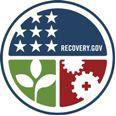Non 12 Step Recovery Programs
 For various reasons, some alcoholics and addicts shy away from 12 step programs. Sometimes it’s the structure or the reliance on spiritual principles. For others, they fear a group setting or they’ve heard about medications and other treatments not available in the 12 step community. I’ve even heard some complain about the lack of anonymity — especially in a small town situation or when they have some local celebrity.
For various reasons, some alcoholics and addicts shy away from 12 step programs. Sometimes it’s the structure or the reliance on spiritual principles. For others, they fear a group setting or they’ve heard about medications and other treatments not available in the 12 step community. I’ve even heard some complain about the lack of anonymity — especially in a small town situation or when they have some local celebrity.
All these reasons are understandable, and no 12 step program would claim to be all things to all people. There are advantages with medically supervised, evidence and outcome based programs. And they are not an either/or choice. Many treatment centers will add a 12 step program as a low-cost, voluntary part of the treatments they offer.
So what are non 12 step programs like? Although each will differ a bit depending on the facility, those that are run by licensed medical professionals will usually have two main stages. The first is a withdrawal phase where symptoms are treated and medications prescribed to combat the effects of abstinence. This is usually done in-house.
The second phase will consist of counseling and individualized therapy along with medications meant to improve abstinence. For alcoholism, a study by the National Institute on Alcohol Abuse and Alcoholism (NIAAA) showed good results with a combination of therapy (both individual and group) along with Naltrexone. Results showed improvement in up to 50% of people undertaking the regimen after a year. Critics point out that a “success” wasn’t defined as complete abstinence, but rather a reduction in alcohol use.
It’s also important to note that studies like the one above do not compare 12 step programs directly with medical treatments alone.
If there were one clear distinction between 12 step programs and non 12 step programs, it would be how the disease of addiction is handled. In 12 step programs, the focus is more on psychological/spiritual changes with no traditional medical treatment, while the opposite is true for non 12 step programs which start with the idea that an addiction is a physical disease that will be helped with medical treatments as well as therapy.
One additional difference between the two is the sense of community that develops with regular attendance in the 12 step group. This is considered a key benefit in AA and NA. Sobriety is both an individual and a group effort.